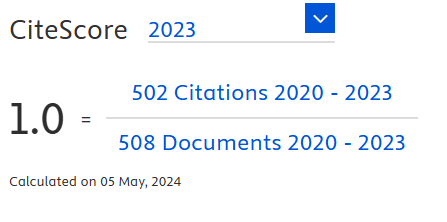Hyperspectral signatures and reflectance models related to the ripening index in four grape varieties
DOI:
https://doi.org/10.18006/2022.10(4).781.788Keywords:
°Brix, Color, Hyperspectral Signature, Ripening Index, pH, TextureAbstract
The preference for the consumption of red wine in Mexico is increasing because its components derived from the grape are attributed to health benefits. The quality of wine depends mostly on the vineyard conditions. The objective of this study was able to differentiate the physicochemical composition in the harvest stage of four varieties of red grapes that are used in the production of wine to relate their maturation with those of their hyperspectral signatures. Various parameters including pH, total soluble solids, color, weight, and morphology were determined from the bunches of grapes. Concerning the maturity index, it was observed that the grapes with the highest degree of maturity were Shiraz and Merlot at harvest time. The pH of grape juice is a measure of active acidity; the texture is considered a quick and inexpensive technique. The hyperspectral signatures reflectances versus color, total soluble solids, morphology, weight, texture, and pH for each grape variety was best fitted with Gaussian curves of order 8 to Cabernet sauvignon and Merlot, 7 to Malbec, and 5 to Shiraz with R2 above 0.99.
References
Adsule, G. D. (2014). Manual of good agricultural practices for quality wine production. National Research Center for Grapes, New Delhí, India, Pp. 125.
Andrade, J. G. R., Moreno, O. C. M., Quiñones, R. V., & Martínez, J. A. V. (2011). Aproximaciones al turismo enológico y sus estrategias de mercadotecnia en México. Gestión turística, 16, 137-155. DOI: https://doi.org/10.4206/gest.tur.2011.n16-07
Benelli, A., Cevoli, C., & Fabbri, A. (2020). In-field Vis/NIR hyperspectral imaging to measure soluble solids content of wine grape berries during ripening. In 2020 IEEE International Workshop on Metrology for Agriculture and Forestry (MetroAgriFor) (pp. 99-103). IEEE. DOI: https://doi.org/10.1109/MetroAgriFor50201.2020.9277621
Baiano, A., Terracone, C., Peri, G., & Romaniello, R. (2012). Application of hyperspectral imaging for prediction of physico-chemical and sensory characteristics of table grapes. Computers and Electronics in Agriculture, 87, 142-151. DOI: https://doi.org/10.1016/j.compag.2012.06.002
Corona, O., Planeta, D., Bambina, P., Giacosa, S., et al. (2020). Influence of different dehydration levels on volatile profiles, phenolic contents and skin hardness of alkaline pre-treated grapes cv Muscat of alexandria (Vitis vinifera L.). Foods, 9(5), 666. DOI: https://doi.org/10.3390/foods9050666
Fernandes, A. M., Franco, C., Mendes-Ferreira, A., Mendes-Faia, A., da Costa, P. L., & Melo-Pinto, P. (2015). Brix, pH and anthocyanin content determination in whole Port wine grape berries by hyperspectral imaging and neural networks. Computers and Electronics in Agriculture, 115, 88-96. DOI: https://doi.org/10.1016/j.compag.2015.05.013
Fernández, M. J., & Meraz Ruiz, L. (2022). Etiqueta como estrategia de compra. Vinos ganadores de concurso internacional. RIVAR (Santiago), 9(25), 230-245. DOI: https://doi.org/10.35588/rivar.v9i25.5457
Gattullo, C. E., Mezzapesa, G. N., Stellacci, A. M., Ferrara, G., et al. (2020). Cover crop for a sustainable viticulture: Effects on soil properties and table grape production. Agronomy, 10(9), 1334. DOI: https://doi.org/10.3390/agronomy10091334
Grajeda-Gonzalez, F., Contreras-Salazar, E. A., & Luna-Maldonado, A. I. (2015) Sistema de Procesamiento de Imágenes para Obtener los Parámetros del Color en Frutos de dos Variedades de Tomate. Academia Journals, Pp. 1156-116.
Grajeda-González, U. F. , Luna-Maldonado, A. I. , Rodriguez-Fuentes, H., Vidales-Contreras, J. A. , Contreras-Salazar, E. A. , & Flores-Breceda, H. (2018). Models Fitting to Pattern Recognition in Hyperspectral Images. In A. I. L. Maldonado, H. R. Fuentes, & J. A. V. Contreras (Eds.), Hyperspectral Imaging in Agriculture, Food and Environment. IntechOpen. https://doi.org/10.5772/ intechopen.73159. DOI: https://doi.org/10.5772/intechopen.73159
Gur, L., Reuveni, M., Cohen, Y., Cadle‐Davidson, L., Kisselstein, B., Ovadia, S., & Frenkel, O. (2021). Population structure of Erysiphe necator on domesticated and wild vines in the Middle East raises questions on the origin of the grapevine powdery mildew pathogen. Environmental Microbiology, 23(10), 6019-6037. DOI: https://doi.org/10.1111/1462-2920.15401
Hornedo-Ortega, R., González-Centeno, M. R. , Chira, K., Jourdes, M., & Teissedre, P. (2020). Phenolic Compounds of Grapes and Wines: Key Compounds and Implications in Sensory Perception. In F. Cosme, F. M. Nunes, & L. Filipe-Ribeiro (Eds.), Chemistry and Biochemistry of Winemaking, Wine Stabilization and Aging. IntechOpen. https://doi.org/10.5772/intechopen.93127. DOI: https://doi.org/10.5772/intechopen.93127
Jia, B., Wang, W., Ni, X., Lawrence, K. C., Zhuang, H., Yoon, S. C., & Gao, Z. (2020). Essential processing methods of hyperspectral images of agricultural and food products. Chemometrics and Intelligent Laboratory Systems, 198, 103936. DOI: https://doi.org/10.1016/j.chemolab.2020.103936
Lavadiya, D. N., Sajid, H. U., Yellavajjala, R. K., & Sun, X. (2022). Hyperspectral imaging for the elimination of visual ambiguity in corrosion detection and identification of corrosion sources. Structural Health Monitoring, 21(4), 1678-1693.. DOI: https://doi.org/10.1177/14759217211041690
Lumbreras, E. L. (2003). Sobre las formas naturalizadas de" Vitis vinífera L." en la Comunidad Valenciana, I. Especies. Flora Montiberica, 23, 46-82.
Melo-Pinto, P., Gomes, V., Fernandes, A., & Mendes-Ferreira, A. (2022). Wine grape ripeness assessment using Hyperspectral imaging. Retrieved from https://www.infowine.com/en/ technical_articles/wine_grape_ripeness_assessment_using_hyperspectral_imaging_sc_19341.htm.
Moscovici, D., Gow, J., Ugaglia, A. A., Rezwanul, R., Valenzuela, L., & Mihailescu, R. (2022). Consumer preferences for organic wine-Global analysis of people and place. Journal of Cleaner Production, 133215. DOI: https://doi.org/10.1016/j.jclepro.2022.133215
Peppi, M. C., Fidelibus, M. W., & Dokoozlian, N. (2006). Abscisic Acid Application Timing and Concentration Affect Firmness, Pigmentation, and Color ofFlame Seedless' Grapes. HortScience, 41(6), 1440-1445. DOI: https://doi.org/10.21273/HORTSCI.41.6.1440
Perrot, N., Baudrit, C., Brousset, J. M., Abbal, P., et al. (2015). A decision support system coupling fuzzy logic and probabilistic graphical approaches for the agri-food industry: prediction of grape berry maturity. PloS one, 10(7), e0134373. DOI: https://doi.org/10.1371/journal.pone.0134373
Pisciotta, A., Planeta, D., Giacosa, S., Paissoni, M. A., Di Lorenzo, R., & Rolle, L. (2020). Quality of grapes grown inside paper bags in Mediterranean area. Agronomy, 10(6), 792. DOI: https://doi.org/10.3390/agronomy10060792
Ruso, J., Filipović, J., Maričić, M., & Spasojević-Brkić, V. (2021). Quality perception and willingness to pay: The case of red wine with health-beneficial effects. Italian Journal of Food Science, 33(2), 1-12. DOI: https://doi.org/10.15586/ijfs.v33i2.1969
Scalisi, A., & O'Connell, M. G. (2021). Application of Visible/NIR spectroscopy for the estimation of soluble solids, dry matter and flesh firmness in stone fruits. Journal of the Science of Food and Agriculture, 101(5), 2100-2107. DOI: https://doi.org/10.1002/jsfa.10832
Shahab, M., Roberto, S. R., Ahmed, S., Colombo, R. C., Silvestre, J. P., Koyama, R., & de Souza, R. T. (2020). Relationship between anthocyanins and skin color of table grapes treated with abscisic acid at different stages of berry ripening. Scientia Horticulturae, 259, 108859. DOI: https://doi.org/10.1016/j.scienta.2019.108859
Shaito, A., Posadino, A. M., Younes, N., Hasan, H., et al. (2020). Potential adverse effects of resveratrol: A literature review. International Journal of Molecular Sciences, 21(6), 2084. DOI: https://doi.org/10.3390/ijms21062084
Suca-Colana, C., Vilca-Curo, R. & Cotacallapa-Sucapuca, M. (2019). Grape maturity (Vitis vinifera) negra criolla, moscatel and quebranta: Analysis of the berry color on the sugar content and total acidity. Agroindustrial Science, 9(2), 109-113. DOI: https://doi.org/10.17268/agroind.sci.2019.02.01
Sun, L., Li, S., Jiang, J., Tang, X., et al. (2020). New quantitative trait locus (QTLs) and candidate genes associated with the grape berry color trait identified based on a high-density genetic map. BMC Plant Biology, 20(1), 1-13. DOI: https://doi.org/10.1186/s12870-020-02517-x
Wang, H., Yan, A., Sun, L., Zhang, G., Wang, X., Ren, J., & Xu, H. (2020). Novel stable QTLs identification for berry quality traits based on high-density genetic linkage map construction in table grape. BMC plantbiology, 20(1), 1-15. DOI: https://doi.org/10.1186/s12870-020-02630-x
Xu, M., Sun, J., Yao, K., Cai, Q., Shen, J., Tian, Y., & Zhou, X. (2022). Developing deep learning based regression approaches for prediction of firmness and pH in Kyoho grape using Vis/NIR hyperspectral imaging. Infrared Physics & Technology, 120, 104003. DOI: https://doi.org/10.1016/j.infrared.2021.104003
Zeb, A. (2020). Concept, mechanism, and applications of phenolic antioxidants in foods. Journal of Food Biochemistry, 44(9), e13394. DOI: https://doi.org/10.1111/jfbc.13394
Zhang, C., Fan, X., Liu, C., & Fang, J. (2021). Anatomical berry characteristics during the development of grape berries with different shapes. Horticultural Plant Journal, 7(4), 295-306.. DOI: https://doi.org/10.1016/j.hpj.2021.04.002
Zouid, I., Siret, R., Mehinagic, E., Maury, C., Chevalier, M., & Jourjon, F. (2010). Evolution of grape berries during ripening: Investigations into the links between their mechanical properties and the extractability of their skin anthocyanins. OENO One, 44(2), 87-99. DOI: https://doi.org/10.20870/oeno-one.2010.44.2.1466
Zulkifli, N., Hashim, N., Harith, H. H., & Shukery, M. F. M. (2020). Finite element modelling for fruit stress analysis-A review. Trends in Food Science & Technology, 97, 29-37. DOI: https://doi.org/10.1016/j.tifs.2019.12.029
Downloads
Published
How to Cite
License
Copyright (c) 2022 Journal of Experimental Biology and Agricultural Sciences

This work is licensed under a Creative Commons Attribution-NonCommercial 4.0 International License.












